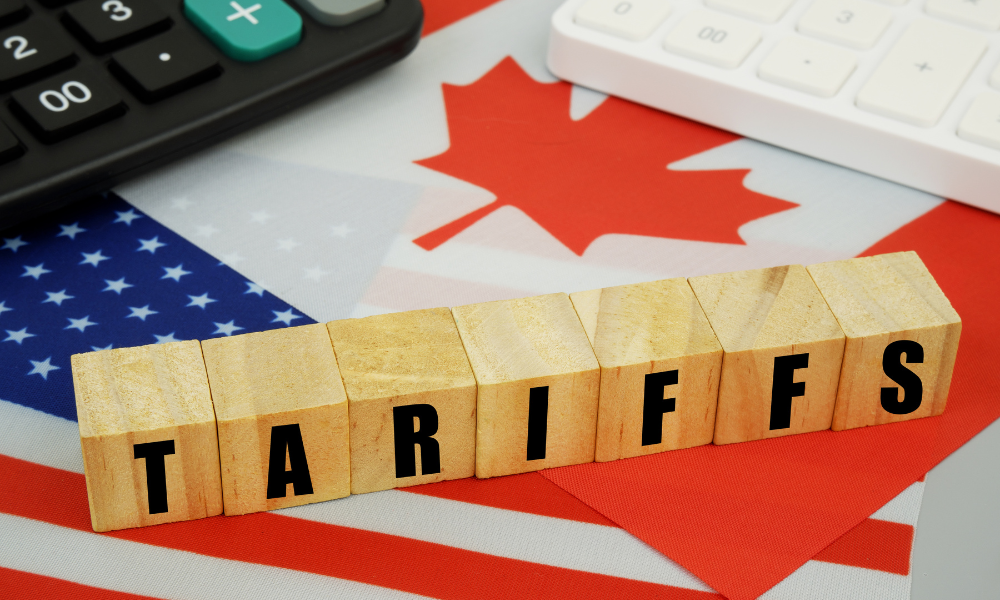Court lets Trump maintain global tariffs while legal battle over presidential powers unfolds

A US appeals court has granted the Trump administration’s request to temporarily halt a lower-court ruling that struck down most of its global tariffs, allowing the duties to remain in effect as the legal fight continues.
The US Court of International Trade ruled that former US President Donald Trump exceeded his authority under the International Emergency Economic Powers Act (IEEPA).
The decision targeted a sweeping package of duties, including 30 percent tariffs on Chinese goods, 25 percent on Mexican and Canadian imports, and 10 percent reciprocal tariffs on goods from around the world.
The court declared the use of the IEEPA to justify such levies unlawful and gave the administration 10 days to remove the tariffs and make no future modifications.
As reported by the Financial Post, the court found the 1970s-era law did not “confer such unbounded authority” to the president.
As per BBC, the court decision did not apply to existing tariffs on steel, aluminium and cars, which were enacted under other trade laws.
Trump’s administration, however, intends to appeal and has signalled that alternative legal mechanisms, such as Sections 201, 301, 232 and 338 of various trade acts, remain viable for imposing tariffs.
According to Trump trade adviser Peter Navarro, “Even if we lose, we will do it another way.”
The appeals court’s order gives the US administration additional time to argue that the trade court’s ruling should be paused throughout the appeals process.
According to CNBC, plaintiffs—including state attorneys general and domestic businesses—have been given one week to respond, with a government reply due by June 9.
Trump criticised the lower-court ruling in a social media post, saying, “Hopefully, the Supreme Court will reverse this horrible, Country threatening decision, QUICKLY and DECISIVELY.”
White House spokesperson Karoline Leavitt told reporters, as quoted by BBC, “America cannot function if President Trump, or any other president, for that matter, has their sensitive diplomatic or trade negotiations railroaded by activist judges.”
The legal challenge comes amid ongoing trade talks.
As reported by the Financial Post, Trump used tariffs as leverage in negotiations, including a May 8 deal with the UK that reduced US tariffs on British cars to 10 percent in exchange for increased US beef access.
Still, the 10 percent baseline duty remains.
Canadian reaction has been cautious.
In the House of Commons, Prime Minister Mark Carney stated that the ruling was “consistent with Canada’s longstanding position that the US IEEPA tariffs were unlawful as well as unjustified.”
Canadian Chamber of Commerce CEO Candace Laing stated, as per the Financial Post, that “ultimately, the end of this trade war with the US will not come through the courts.”
She said it will require a durable, new trade agreement that is trusted and respected by all parties involved.
The business community remains uncertain.
Kara Dyer, owner of Story Time Toys, said the tariffs created planning difficulties. “It’s just been so chaotic and so impossible to plan as a business,” she told BBC.
Meanwhile, lawyer Ilya Somin, who helped build the case, said he was “guardedly optimistic” the ruling would hold up on appeal, noting the bipartisan nature of the panel.
Experts remain divided on how the appeals court or the Supreme Court will rule.
Kevin Hassett, director of the National Economic Council, told Fox Business that the judges were “trying to slow down something right in the middle of really important negotiations.”
Derek Holt of the Bank of Nova Scotia warned the situation could become “a game of tariff whack-a-mole,” with courts potentially striking down other legal justifications one by one.
The next appeals court hearing is scheduled for June 5.
Sources: CNBC; BBC; Reuters; Financial Post



